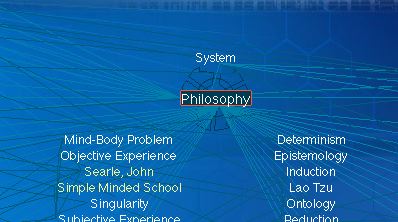Matt pointed me to a story in Slashdot about a Procedural Arts free interactive drama called Facade.
From the developers:
Facade is a prototype of interactive drama, a new genre of character and story-intensive interactive entertainment. Facade is freely downloadable at interactivestory.net. In Facade, you, the player, using your own name and gender, play the character of a longtime friend of Grace and Trip, an attractive and materially successful couple in their early thirties. During an evening get-together at their apartment that quickly turns ugly, you become entangled in the high-conflict dissolution of Grace and Trip’s marriage. No one is safe as the accusations fly, sides are taken and irreversible decisions are forced to be made. By the end of this intense one-act play you will have changed the course of Grace and TripÔø?s lives Ôø? motivating you to re-play the drama to find out how your interaction could make things turn out differently the next time.
There is also a conveniently mirrored copy of a New York Times article Redefining the Power of the Gamer by Seth Schiesel (June 7, 2005) which discusses the innovations behind Facade. If I undestand it, the developers have built the AI equivalent to a set of laws of physics so that you don’t have to script the interaction. Instead you use ABL (A Behavior Language), a drama manager, a rule language and a discourse management framework to describe the characters, their goals, the units of the story, and natural language understanding. Very cool. Lets hope this idea gets woven into games.
